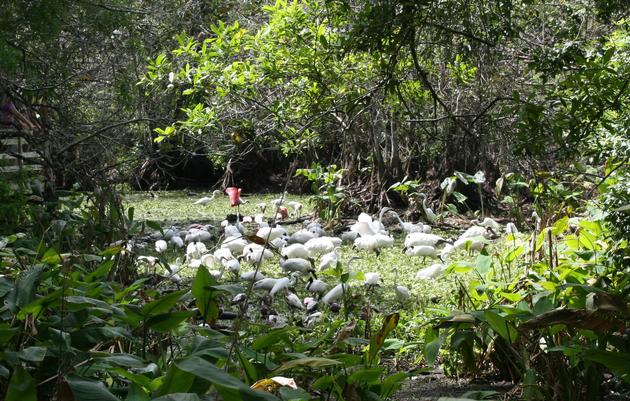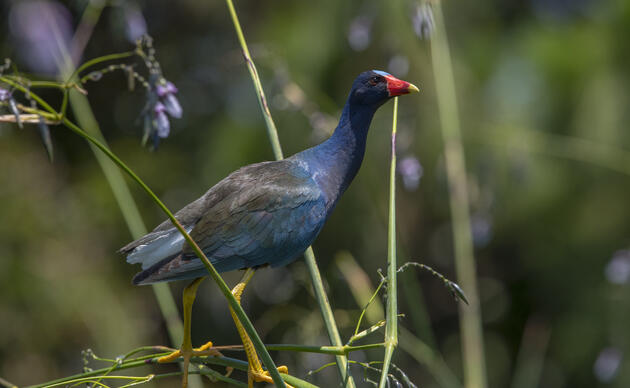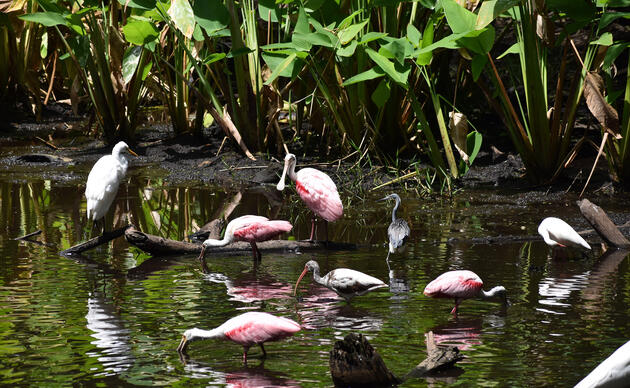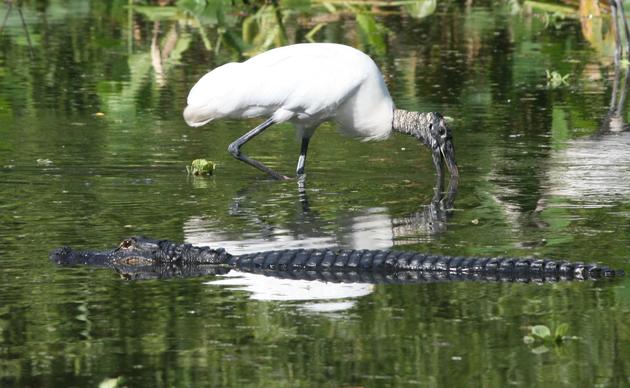Conservation Policy & Advocacy
Public policy advocacy at Corkscrew Swamp is guided by sound science. The Corkscrew Swamp Sanctuary science staff works closely with the Audubon Florida policy team on policy issues. The primary goal of our conservation policy effort is to support the Corkscrew mission.
Audubon's Corkscrew Swamp Sanctuary Mission:
To preserve Corkscrew Swamp Sanctuary and support conservation and restoration of natural ecosystems throughout the Western Everglades. We use science driven land management and education to protect birds, other wildlife, and people.
How Everglades Science Conducted at Corkscrew Guides Audubon Florida's Policy Work
For a snapshot of how we go about public policy advocacy at Corkscrew, consider Audubon Florida's work on Wood Stork-related issues. We have over 50 years of Wood Stork nesting data and hydrology from the Corkscrew colony. We recognized a sharp decline in the Wood Stork population as well as delayed colony initiation most years.
Statistical analysis revealed that, since 1978, successful nesting years were strongly correlated with peak waters levels well above the 50-year average. A close inspection of the GIS mapping data of the predevelopment land cover in the Corkscrew Wood Stork colony Core Foraging Area revealed a significant loss of shallow wetlands. Audubon Florida launched a study to assess the foraging opportunity available to Wood Storks in southwest Florida and found that they foraged on wet prairies with more significantly higher frequency than could be expected based solely on the availability of wet prairies in the landscape. This prompted Audubon Florida's science staff to look more closely at how impacts to shallow wetlands are regulated.
An examination of the U.S. Fish and Wildlife Service (USFWS) Biological Opinions on Wood Storks, and on a number of large-scale developments projects affecting shallow wetlands, revealed that the regulatory agencies were not recognizing the value inherent in these wetlands to the detriment of efforts to stabilize and recover the Wood sSorks. The analysis of our science staff was then put into action to pursue reforms of the Uniform Mitigation Assessment Method (UMAM) and the Wood Stork consultations performed by the USFWS and ACOE.
Panther Protection
In addition to wetland and Wood Stork issues, Audubon has been working to recover the Florida Panther in South Florida through advocacy; such as support of the Rural Lands Stewardship Program, identification and protection of panther corridors and strategic land acquisitions.
How you can help, right now
Donate to Protect Corkscrew's Birds and Wetlands
Make a meaningful and lasting gift to protect Corkscrew Swamp Sanctuary's rare Everglades habitat.
Become a Member
Join an extraordinary and growing community of members dedicated to supporting the conservation of natural ecosystems throughout the Western Everglades.
Sign Up for the Corkscrew eNewsletter
Stay connected to Corkscrew Swamp. Sign up for our monthly online newsletter.




